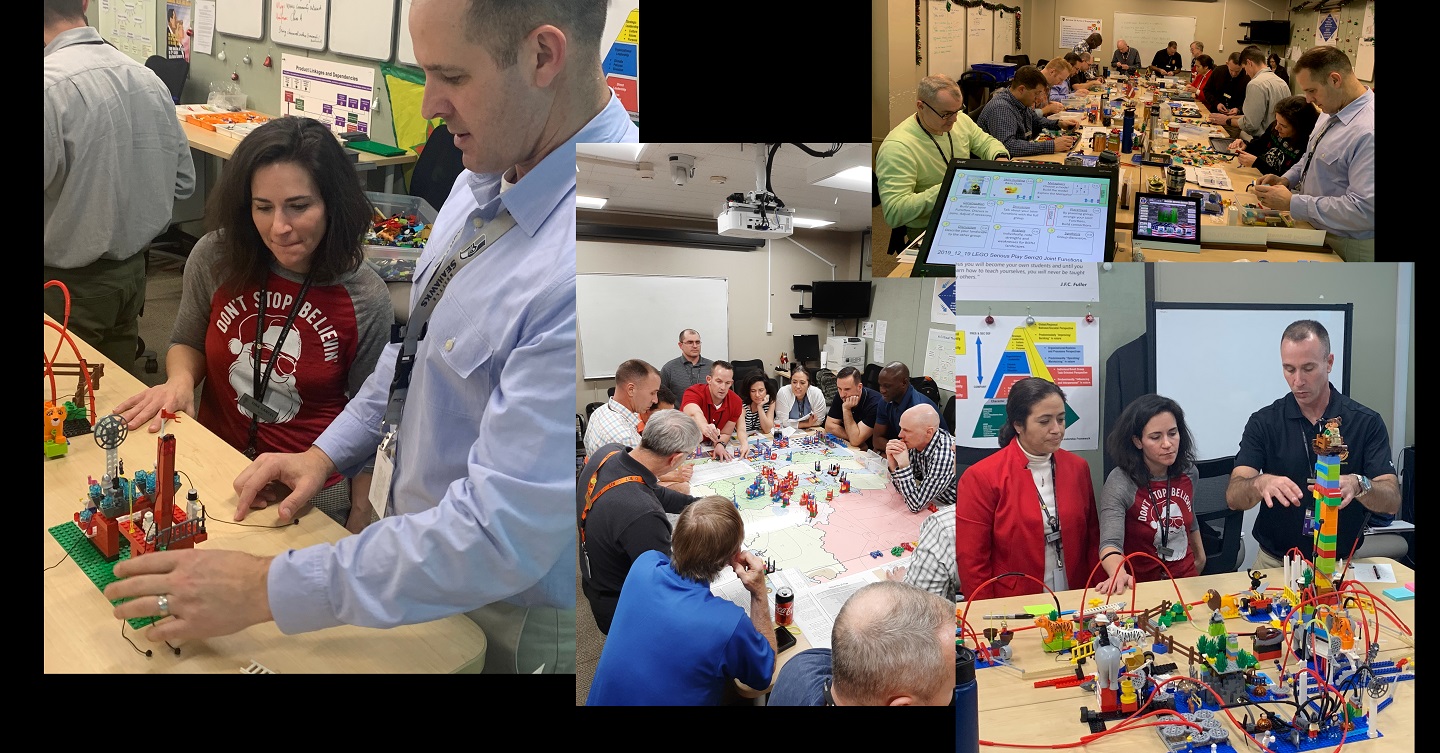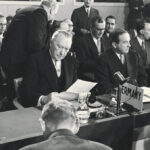
Last year our WARGAMING ROOM editor, Ken Gilliam, sat down with a soon-to-graduate War College student to get her impression of the use of wargames in the classroom. A BETTER PEACE welcomes War College graduate Tina Cancel to the studio to share her thoughts and experiences with LEGO® Serious Play® and the War College created game, Joint Overmatch. Ken has recently retired and moved on to a new career and this was fitting as his final episode because Tina confirms the benefits of all of his hard work during his time as the Director of Strategic Wargaming at the Center for Strategic Leadership and gives him some great feedback to pass on to his successor.
It ties in all of the components of what we are set to learn at the War College and so having that maybe more upfront and playing it kind of off and on throughout the year or mixing up the teams would be beneficial…
Podcast: Download
Subscribe: Apple Podcasts | Spotify | Amazon Music | Android | Pandora | iHeartRadio | Blubrry | Podchaser | Podcast Index | TuneIn | Deezer | Youtube Music | RSS | Subscribe to A Better Peace: The War Room Podcast

Tina Cancel is a U.S. Navy Civilian and Comptroller for the Naval Supply System’s Command Business Systems Center. She is a graduate of the AY20 Resident Class at the U.S. Army War College.
Ken Gilliam is a retired U.S. Army Colonel and the former Director of Strategic Wargaming at the Center for Strategic Leadership, U.S. Army War College.
The views expressed in this presentation are those of the speakers and do not necessarily reflect those of the U.S. Army War College, U.S. Army, U.S. Navy or Department of Defense. LEGO® is a trademark of the LEGO Group of companies which does not sponsor, authorize or endorse this site
Photo Description: AY20 students collaborate during a LEGO® Serious Play® session and a round of Joint Overmatch
Photo Credit: Photos courtesy of Ken Gilliam
Other releases in the “Wargaming Room” series:
- BACK TO THE BASICS IN WARGAMING – WITH A LITTLE HELP FROM AI
- EMPOWERING THE NEXT GENERATION: MENTORING EMERGING WARGAMERS
- USING ALTERNATIVE HISTORY TO THINK THROUGH CURRENT AND FUTURE PROBLEMS
(WARGAMING ROOM) - EAGLE AGAINST THE DRAGON:
WARGAMING AT THE ARMY WAR COLLEGE
(WARGAMING ROOM) - WAR FIGHTING, WAR THINKING
- SIMULATING DIPLOMATIC DISASTER
(WARGAMING ROOM) - BETTER STRATEGY? IT’S ALL IN THE GAME
(WARGAMING ROOM) - CAVEAT MILITES: SOLDIERS, BEWARE — LEARNING FROM PAST ARMY EXPERIMENTS
(WARGAMING ROOM) - NOT JUST WAR GAMES: SIMULATING CRISIS NEGOTIATIONS
(WARGAMING ROOM) - USE WARGAMING TO SHARPEN THE TACTICAL EDGE
(WARGAMING ROOM)





Question No. 1: Is the “Joint Overmatch” exercise based on — and/or does it otherwise properly take into account — :
a. The political objective the U.S./the West; which is, both at home and abroad, to alter the ways of life, the ways of governance, the values, etc., of the states and societies of the world; this, so that same might be made to better provide for, and to better benefit, from such things as globalization and the global economy? And, in this such context:
b. The political objective of both our “at home” and “abroad” opponents; which is, to prevent the U.S./the West from achieving these such “revolutionary”/”modernizing” initiatives and goals?
(Here is an example of these such diametrically opposed political objectives at work:
“Liberal democratic societies have, in the past few decades, undergone a series of revolutionary changes in their social and political life, which are not to the taste of all their citizens. For many of those, who might be called social conservatives, Russia has become a more agreeable society, at least in principle, than those they live in. Communist Westerners used to speak of the Soviet Union as the pioneer society of a brighter future for all. Now, the rightwing nationalists of Europe and North America admire Russia and its leader for cleaving to the past.” [See “The American Interest” article “The Reality of Russian Soft Power” by John Lloyd and Daria Litinova.])
Question No. 2: Is the LEGO exercise based on — and/or does it otherwise properly take into account — the political objectives noted above?
Question No. 1: Is the “Joint Overmatch” exercise based on — and/or does it otherwise properly take into account — :
a. The political objective the U.S./the West; which is, both at home and abroad, to alter the ways of life, the ways of governance, the values, etc., of the states and societies of the world; this, so that same might be made to better provide for, and to better benefit, from such things as globalization and the global economy? And, in this such context:
b. The political objective of both our “at home” and “abroad” opponents; which is, to prevent the U.S./the West from achieving these such “revolutionary”/”modernizing” initiatives and goals?
(Here is an example of these such diametrically opposed political objectives at work:
“Liberal democratic societies have, in the past few decades, undergone a series of revolutionary changes in their social and political life, which are not to the taste of all their citizens. For many of those, who might be called social conservatives, Russia has become a more agreeable society, at least in principle, than those they live in. Communist Westerners used to speak of the Soviet Union as the pioneer society of a brighter future for all. Now, the rightwing nationalists of Europe and North America admire Russia and its leader for cleaving to the past.” [See “The American Interest” article “The Reality of Russian Soft Power” by John Lloyd and Daria Litinova.])
Question No. 2: Is the LEGO exercise based on — and/or does it otherwise properly take into account — the political objectives noted above?